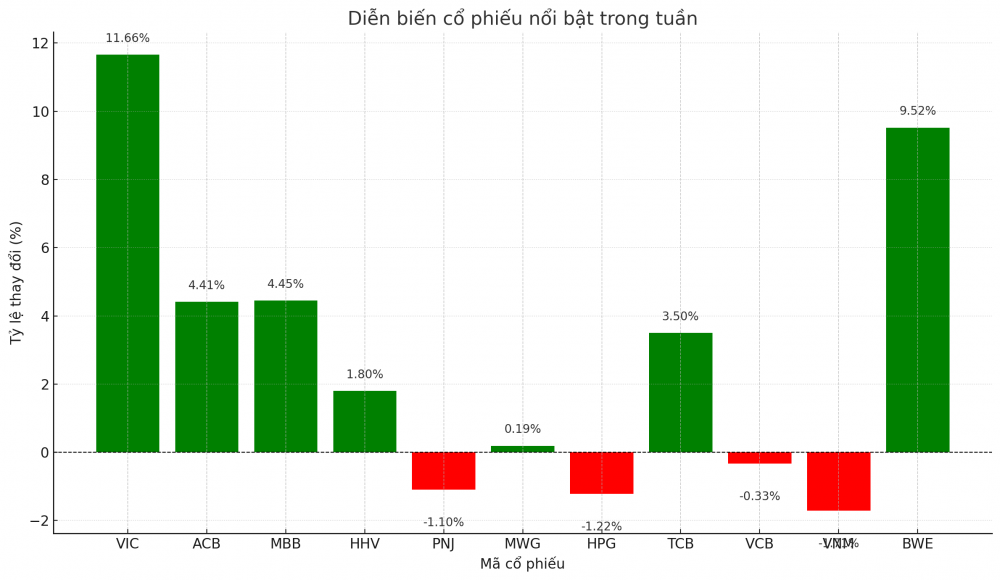The draft law amending seven laws in the financial sector that the Government has just submitted to the National Assembly has removed the provision prohibiting individual professional securities investors from purchasing individual corporate bonds. However, with strict conditions, the opportunity for individual investors to participate in this market is very small.
Individuals are allowed to buy individual corporate bonds: Classifying businesses to avoid market "congestion"
The draft law amending seven laws in the financial sector that the Government has just submitted to the National Assembly has removed the provision prohibiting individual professional securities investors from purchasing individual corporate bonds. However, with strict conditions, the opportunity for individual investors to participate in this market is very small.
 |
| New draft regulations will expand opportunities for individual investors to buy individual corporate bonds |
Individuals who want to buy also find it difficult to find "goods"
Among the seven laws in the financial sector that are being proposed for amendment, the amended Securities Law is of particular interest, especially the provisions on individual corporate bonds.
In the Draft, the Government stipulates that professional securities investors are individuals who are allowed to participate in purchasing, trading, and transferring individual corporate bonds. However, the enterprise issuing such individual corporate bonds must be credit rated, plus the condition of having collateral or payment guarantee from a credit institution.
Talking to reporters of Dau Tu Newspaper, economic expert Tran Hoang Ngan said that removing the regulation prohibiting individual professional investors from participating in the private corporate bond market (as in the previous draft) is reasonable. In fact, after experiencing many ups and downs, the level and understanding of individual professional investors have been significantly improved. It is necessary to allow for a diverse investor structure for the corporate bond market to develop strongly and become a medium and long-term capital mobilization channel for businesses.
Many National Assembly deputies also agreed with this regulation. Delegate Le Quan (Hanoi) shared that the corporate bond market is an important channel for businesses to mobilize capital and is also an effective investment channel. Strict regulations on the type of corporate bonds that individual professional securities investors are allowed to trade will help reduce risks and make people feel more secure when investing money.
Similarly, delegate Doan Thi Thanh Mai (Hung Yen) commented that regulations like the draft law not only help reduce risks for individual investors, but also help improve the quality of goods in the bond market, helping the market develop safely and healthily.
However, the above regulation also makes many issuing enterprises and securities companies worried. The leader of a securities company is worried because although the draft law has "opened the way" for individual professional investors to participate in the private corporate bond market, this path is too narrow. In fact, the number of enterprises issuing private corporate bonds with credit ratings can be counted on the fingers of one hand, and those with bank payment guarantees are even rarer.
“If the above regulation is passed, the number of individual investors participating in the individual corporate bond market will certainly decrease sharply, leading to a decrease in liquidity in the entire market,” he said.
Need to classify issuing enterprises
According to leaders of many securities companies and fund management companies, the general application of regulations to enterprises issuing individual corporate bonds sold to individual professional investors is unfair. Accordingly, it is necessary to classify the group of issuing enterprises as public companies and the group of issuing enterprises as non-public companies.
 According to National Assembly delegate Hoang Van Cuong (Hanoi), the regulation that issuing enterprises wishing to sell individual corporate bonds to individuals must have a credit rating, collateral or bank guarantee will help increase the responsibility of issuing enterprises. Thereby, it will encourage the development of a healthy bond market.
According to National Assembly delegate Hoang Van Cuong (Hanoi), the regulation that issuing enterprises wishing to sell individual corporate bonds to individuals must have a credit rating, collateral or bank guarantee will help increase the responsibility of issuing enterprises. Thereby, it will encourage the development of a healthy bond market. Of course, if this regulation is applied, the bond market will be affected, it will be more difficult for businesses to issue individual corporate bonds because it will be more difficult to find buyers.
For the group of issuing enterprises that are listed public companies, it is necessary to expand the scope of professional investors to individuals who are allowed to participate in purchasing individual corporate bonds. The reason is that these enterprises operate in compliance with many laws (Enterprise Law, Securities Law, etc.), and are under the close supervision of the State Securities Commission and the Stock Exchange. Information of this group of enterprises is publicly disclosed, transparent, fully audited, and easily accessible to individual investors. Furthermore, to become public companies, these enterprises have to go through the process of reviewing and approving the documents of the State Securities Commission (ie have been screened).
Particularly for the group of issuing enterprises that are not yet public companies, tightening the conditions for selling privately issued corporate bonds to individual investors is very necessary, because this is a group of enterprises that are not subject to the supervision of any agency regarding information transparency as well as information quality. Therefore, for this group of companies, applying regulations such as the Draft Law on Securities (amended) is necessary.
According to many analysts of securities companies, it is necessary to classify specifically for each individual corporate bond issuer that individual investors can trade. Accordingly, for issuers that are public companies that have been listed and are operating profitably, only a credit rating is required. For public companies that have been listed and are making losses, additional collateral is required. As for non-public issuers, the "3 yes" requirements must be a credit rating, collateral, and payment guarantee.
The above classification aims to limit risks for individual investors, as well as encourage businesses to move towards massification.
Source: https://baodautu.vn/ca-nhan-duoc-mua-trai-phieu-doanh-nghiep-rieng-le-phan-loai-doanh-nghiep-de-tranh-nghen-thi-truong-d228883.html



































![[Photo] "Beauties" participate in the parade rehearsal at Bien Hoa airport](https://vstatic.vietnam.vn/vietnam/resource/IMAGE/2025/4/11/155502af3384431e918de0e2e585d13a)




























































Comment (0)